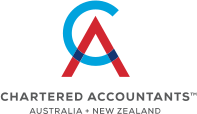As a high-earning medical professional, you should find yourself in a good financial position for investing. How can you make the most of these funds? Medical financial adviser Kym Nitschke explains the best ways doctors can invest their money.
What is your dream? To build a nest egg for your family? Take an early retirement and enjoy a great lifestyle? Travel the world?
Whatever it may be, investing strategically is the best way to build wealth.
On the downside, doctors tend to be prime targets for dodgy investment schemes. Taking bad advice can cost you your fortune.
Here’s how you can avoid the risks and start making smart investments.
Avoid High-Risk Opportunities
Have you gotten an investment offer that sounds too good to be true? It is. At least, it probably is. A solid investment scheme requires careful planning and strategy on your part. It has to suit your circumstances and needs exactly. The perfect situation doesn’t just fall into your lap and if a seemingly perfect opportunity just shows up in an email one day, you should be very cautious.
High-risk schemes that claim ‘guaranteed’ returns can’t actually guarantee anything. Some offers may push the tax benefits that come with investing, but you need to remember that tax benefits should never be the primary benefit. They can’t cancel out any amount you may lose in a risky scheme.
You should also be cautious of speculative investment endeavours. These are offers which promise a potential return but don’t have any history to back them up. An example of speculative investing would be buying a piece of land based on someone’s tentative plans to put a building on it. If you do decide to bank on such an investment, just make sure it doesn’t take up more than 10% of the funds you have available to invest with.
Diversify: Different Kinds of Investments for Doctors
There are four main investment classes in Australia for doctors to invest in. These are:
– Property
– Shares
– Fixed income assets
– Cash
Property is the most reliable form of investment in Australia. It takes a while to get into, but it is a stable and sustainable option. With advice from financial experts and careful planning, you could make a pretty good start in the property market.
Shares can be effective and quite lucrative, but you need a smart strategy. You can’t just come in sweeping up every low-priced share you can find. Gains and losses can be dramatic so you have to be prepared for the risk. You will definitely need an experienced investment adviser to help you get started and manage your portfolio.
Fixed income assets include things like government bonds. They aren’t all that exciting, but they can provide you with a small and steady stream of financial growth that can help offset your losses in other areas.
Investing in cash is the most liquid and secure way to invest your money. But it’s also the slowest way to see a return.
As you can see, each investment sector has it’s pros and cons. It’s up to you to decide which avenues will suit you best after determining what level of risk you can afford to take.
Diversity is crucial in designing your investment portfolio, to maximise growth and prevent risk. You should aim to have investments in multiple sectors, as well as savings set aside.
Even within the unique investment categories there is room for still more diversity. For example, you could buy shares in communications, infrastructure and banking industries. If you buy a commercial property, you might later want to consider investing in a private residential dwelling.
Diversification can protect your finances in the even that one of your investments takes a hard hit.
Do Your Research
Ultimately, this is your money you’re working with. You have every right and obligation to understand exactly where it goes. Don’t blindly invest in the first opportunity that comes your way, assuming everything will go well. You still need to have a plan and to carefully weigh the risks and benefits of any investment decision. Even if you work with an adviser or two, take an active interest in your investments.
Resist Comparison
Try not to get distracted from the reason you got into investing in the first place. If you look at investing as some competition that you have to strive to be the best in, then you’ll set yourself up to lose a lot.
Know when to quit. If you compare yourself with friends and colleagues who seem to be raking in larger returns than you, then you might be tempted to risk all that you’ve gained so far.
Instead, play it safe. A conservative strategy pays off long term. If you have something left over after paying off your house (or whatever else you wanted to save up for), then feel free to use the extra to experiment with. Just don’t let pride and competition distract you from achieving your goals.
Consult with Other Professionals
As a doctor, you know your stuff when it comes to medicine. But investing may be uncharted waters for you. Don’t attempt to get into investing on your own.
Nitschke Nancarrow specialise in creating wealth plans, investment, tax and accounting for medical professionals.
Contact Nitschke Nancarrow managing partner Kym Nitschke for a free initial discussion about your situation. Call us on (08) 8379 9950 or send me an email.
– Kym Nitschke
The information contained on this web site is general in nature and does not take into account your personal situation. You should consider whether the information is appropriate to your needs, and where appropriate, seek professional advice from a financial adviser.
Taxation, legal and other matters referred to on this website are of a general nature only and are based on Nitschke Nancarrow’s interpretation of laws existing at the time and should not be relied upon in place of appropriate professional advice. Those laws may change from time to time.
Nitschke Nancarrow specialises in accounting, tax and financial advice for superannuation. Contact us now for a no obligations discussion about your needs.














